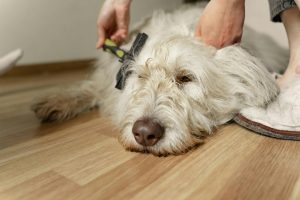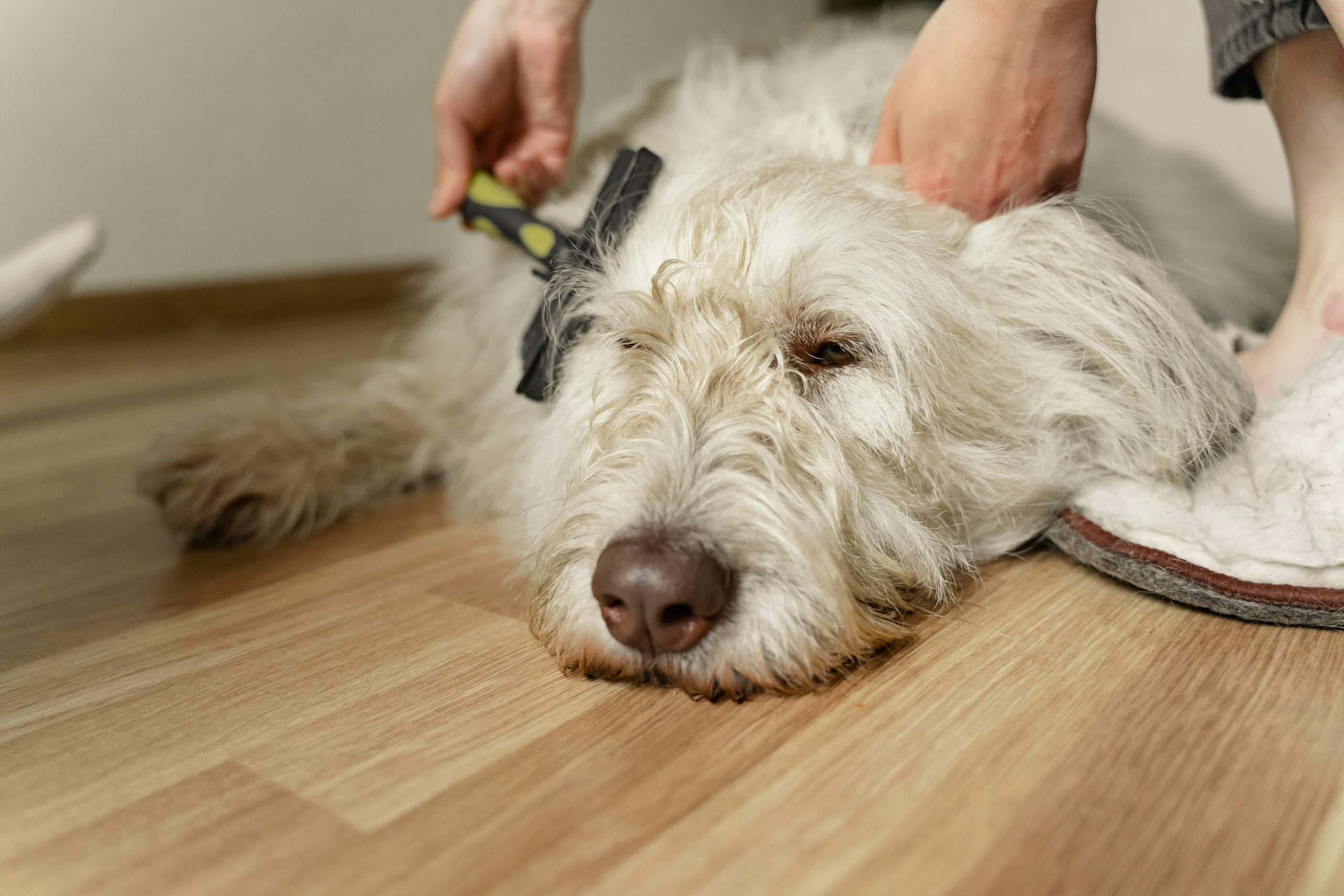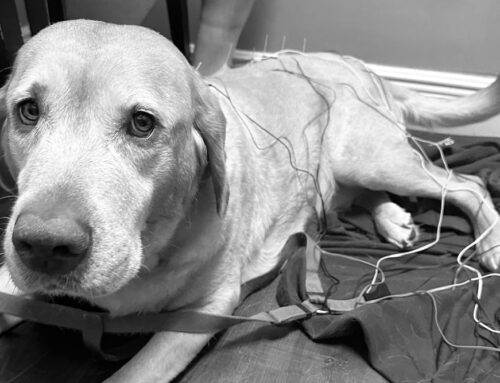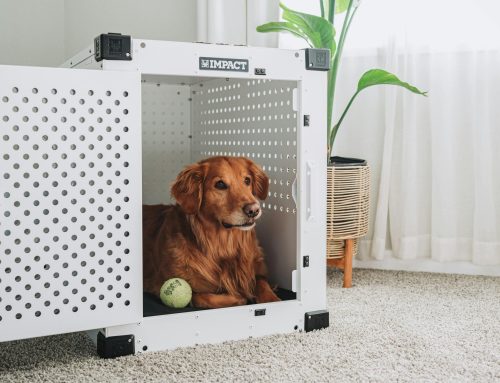
As pet parents in Westchase, FL, we know that taking our beloved cats and small dogs to the veterinarian can be one of the most stressful experiences for both you and your furry family members. At West Park Animal Hospital, we witness firsthand how veterinary visit anxiety affects our patients, and we strive to make these essential health visits as comfortable as possible for everyone involved.
Understanding that your pet’s well-being extends beyond physical health to include emotional comfort, we’ve compiled these evidence-based strategies to transform those dreaded vet visits into manageable, even positive experiences.
Understanding Pet Anxiety at the Veterinary Clinic
Veterinary anxiety in cats and small dogs is incredibly common and completely understandable. Many veterinary teams recognize that unfamiliar scents, sounds, and environments can trigger your pet’s natural stress responses. Small dogs and cats, in particular, may feel overwhelmed by the clinical setting, which can make them more reactive during their wellness exams or treatment visits.
Research shows that stress hormones can actually interfere with accurate diagnostic results, making anxiety management not just about comfort, but about providing the best veterinary care possible.
Pre-Visit Preparation: Setting Your Pet Up for Success
Carrier Training for Cats and Small Dogs
The journey to the vet begins at home with proper carrier preparation. Rather than bringing out the carrier only for vet visits, make it a comfortable, familiar space in your home. Place soft bedding, favorite toys, and even treats inside the carrier regularly. This positive association helps reduce the immediate stress response when it’s time for their veterinary appointment.
For cats, especially, consider using synthetic pheromone sprays in the carrier 30 minutes before your visit. These feline facial pheromones can significantly reduce anxiety levels during transport to a veterinary clinic.
Gradual Desensitization
If your pet shows severe anxiety about veterinary visits, gradual exposure can work wonders. Start by taking short car rides that don’t end at the vet clinic. Visit your vet parking lot occasionally, allowing your pet to see and smell the environment without the pressure of an actual appointment. This systematic desensitization helps normalize the experience over time. At West Park Animal Hospital, we are even happy to have pets in the clinic for a few minutes for treats and some friendly attention without having an actual doctor visit, as long as these are scheduled in advance.
Scheduling Considerations
When booking your appointment at the veterinary office, consider your pet’s natural rhythms. Some animals do better with early morning visits when they’re naturally calmer, while others prefer afternoon appointments. Discuss timing preferences with the veterinary staff – some are always happy to accommodate your pet’s individual needs.
Day-of-Visit Strategies
Creating Calm Energy
Your emotional state directly influences your pet’s anxiety levels. Practice deep breathing and maintain calm, confident energy from the moment you begin preparing for the visit. Speak in soothing, normal tones rather than overly excited or worried voices. Remember, your pet reads your emotional cues more accurately than you might realize.
Comfort Items and Familiar Scents
Bring a favorite blanket or toy that carries familiar home scents. For our feline patients, consider bringing a piece of clothing that smells like you. These comfort items provide emotional anchoring during the unfamiliar veterinary examination process.
Feeding Considerations
Unless your veterinarian has specifically requested fasting for procedures, avoid dramatic changes to your pet’s routine on appointment days. However, consider offering a light meal rather than a full one to prevent motion sickness during travel to the clinic. This also allows your pet to come to the clinic a little hungry, so we can offer lots of delicious treats for positive reinforcement.
Working with Your Veterinary Team
Communication is Key
Many staff want to know about your pet’s specific anxieties and triggers. Share previous experiences, what has worked well, and what hasn’t. This information helps tailor the approach to your individual pet’s needs and personality. Some veterinary clinics, like West Park Animal Hospital, incorporate these past experiences into each pet’s medical history and use them to make future visits more enjoyable.
Fear-Free Handling Techniques
Many veterinary professionals are trained in fear-free handling techniques that minimize stress during examinations. These methods respect your pet’s emotional state while ensuring thorough veterinary care. Don’t hesitate to ask about these approaches or request specific accommodations.
Sedation Options
For pets with severe veterinary anxiety, discuss anti-anxiety medications with your veterinarian. These pharmaceutical options, when used appropriately, can transform a traumatic experience into a manageable one. Some pets benefit from mild sedation, while others may need only natural calming supplements.
Post-Visit Recovery and Positive Associations
Immediate Post-Visit Care
After leaving the animal hospital, give your pet time to decompress at home. Provide quiet spaces, fresh water, and normal routines. Some pets may hide or act differently for several hours after veterinary visits – this is completely normal processing behavior.
Building Positive Associations
Consider stopping somewhere pleasant on the way home, if appropriate for your pet. This might be a brief car ride through a favorite neighborhood or a few minutes in your own driveway before going inside. These positive experiences help balance the clinical visit in your pet’s memory.
Reward Systems
Offer special treats or engage in favorite activities after veterinary visits. This positive reinforcement helps your pet associate the entire experience with good outcomes, gradually reducing anticipatory anxiety for future appointments. You may even want to reserve some of your pet’s favorite treats for when you are at the veterinary visit. Bring some along with you for the veterinary team to use as distractions during vaccines, blood draws, exams, or other procedures.
Special Considerations for Cats vs. Small Dogs
Feline-Specific Strategies
Cats often respond well to vertical hiding spaces during veterinary visits. Ask if examination rooms have elevated perches or if you can bring a small pet bed for the exam table. Many cats feel more secure when they can observe from a higher vantage point rather than being held or restrained on lower surfaces.
Cover carriers with lightweight blankets during transport and while waiting. This creates a den-like environment that appeals to your cat’s natural preferences for enclosed, secure spaces.
Small Dog Considerations
Small dogs may benefit from staying in their owner’s lap during portions of the examination, when medically appropriate. Their size can make them feel vulnerable on large examination tables, so discuss comfort positioning options with your veterinary team.
Some small breeds respond well to gentle massage or steady petting during procedures. Others prefer minimal handling and do better when allowed to stand naturally during examinations.
Long-Term Relationship Building with Your Vet
Regular Wellness Visits
Maintaining consistent wellness care helps build positive familiarity over time. Regular check-ups mean that veterinary visits aren’t associated only with illness or emergencies. This routine creates more positive experiences to balance any negative associations.
Socialization Opportunities
When appropriate, brief social visits to the animal hospital can help normalize the environment. A quick stop for weight checks creates positive, low-stress interactions with veterinary staff.
When to Seek Additional Support
Recognizing Severe Anxiety
If your pet’s veterinary anxiety includes symptoms like excessive panting, drooling, loss of bladder control, or aggressive behaviors, discuss comprehensive anxiety management with your veterinary team. These signs indicate that professional intervention beyond basic comfort measures may be necessary.
Behavioral Consultation
Sometimes, working with a certified animal behaviorist in conjunction with veterinary care provides the best outcomes for pets with severe anxiety. The team can provide referrals to qualified professionals in your area.
Creating Lasting Change
Remember that reducing veterinary anxiety is often a gradual process requiring patience and consistency. Each positive experience builds upon the last, creating a foundation of trust and comfort that benefits your pet’s lifelong healthcare journey.
Your dedication to making veterinary visits less stressful demonstrates the depth of love and care you have for your companion animal. At West Park Animal Hospital in Westchase, FL, we’re honored to be part of your pet’s healthcare team and committed to providing compassionate, fear-free veterinary services.
By implementing these strategies and working closely with our experienced veterinary professionals, you’re giving your cat or small dog the gift of stress-free healthcare – because every pet deserves to feel safe and loved, especially when they need medical attention most.
West Park Animal Hospital is located in Westchase, FL, providing comprehensive veterinary care for cats, dogs, and exotic pets. Our experienced veterinary team specializes in fear-free handling techniques and anxiety management for all patients. Contact us today to schedule your pet’s stress-free veterinary appointment.







Leave A Comment